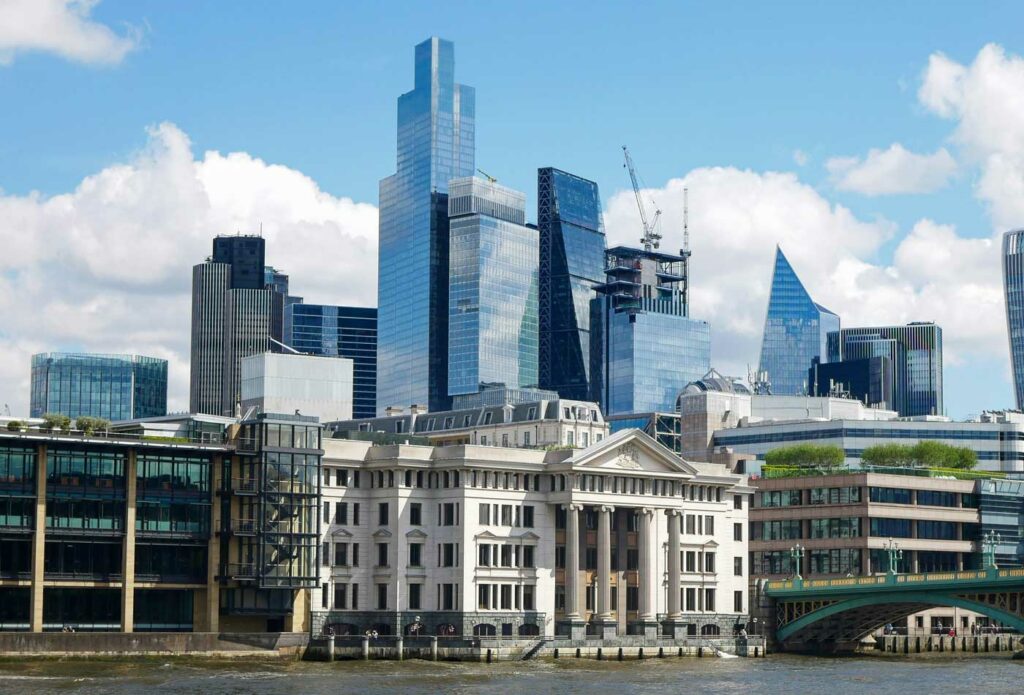When you run your own business, you give it 100%. From the long hours and financial investment to the personal sacrifices and sleepless nights of worry, owning a business is challenging. As you take on these challenges, the savvy business owner will think about how to best protect their company, asking – what insurance do I need for my business? Business insurance is an umbrella term for a collection of useful covers – but what do you need for your own business?
What is business insurance?
Business insurance is a set of covers designed to protect the key financial risks of running a company. This ranges from employee and third-party claims to protection for your premises, equipment, and stock.
Because every business is unique, the best insurance policies are bespoke, reflecting the individual company’s needs. This ensures you get the level of protection you need without paying for cover that doesn’t relate to your business.

Is building insurance a legal requirement?
Does a business need insurance by law? If you employ anyone who isn’t a direct family member, you need a type of business insurance known as employers’ liability. In the UK it is a legal obligation to hold at least £5 million of employers’ liability cover, even if you only employ one part-time member of staff.
Other than employers’ liability, most businesses will not have a legal need to hold specific cover. However, many contractors, governing and regulatory bodies, and local authorities will request specific insurance coverage to work for them—notably, public liability insurance.
Are there any businesses that don’t require business insurance?
If you are a sole trader with no employees, you are not legally obligated to hold any insurance in most cases. That does not mean you shouldn’t because, as you’ll learn, there are many benefits to having the correct type of cover.
Do I need business insurance?
Every expenditure must be carefully considered, especially when nurturing a start-up. Understandably, if you’re on a tight budget and don’t have employees, you may ponder, do I need business insurance?
There are several key questions you can ask yourself to help you decide for your business.
First, will you come into contact with members of the public while running your business? This includes customers entering commercial premises (like a shop or café), working in public spaces, working within premises or private homes, or having members of the public enter your home. If any of these scenarios are true for your business, you have a strong case for benefiting from an insurance policy. Why? In any of these scenarios, if a member of the public is injured or their property damaged and you are at fault, you will be expected to pay for any compensation claims made. Could you afford to shoulder such a claim?
Second, could you financially recover from the cost of repairing or replacing critical items within your business? This could be equipment, plant, tools, or stock.
Third, if you suddenly became unable to work, could the business continue functioning profitably without you?
If you have answered no to any of these questions, business insurance is a simple solution. It takes away the worry of the “what ifs” and allows you to focus on running the business, whatever happens.
As you can see, most commercial and trade businesses become obvious candidates for business insurance, but what about other small businesses?

Sole traders
The buck stops with you as a sole trader. If you can’t work due to a long-term illness or injury, your business and earnings may grind to a halt. Business insurance allows you to prepare for such eventualities, ensuring you have a financial cushion if you can’t work long-term.
When it’s only you running the show and balancing the finances, you won’t want to be burdened with an expensive third-party claim or repair and replacement costs. For peace of mind, business insurance can offer a financial safety net.
Businesses run from home
Does a business need insurance if it is run from your own home? If your home business involves members of the public visiting your home, you might like to cover yourself with public liability insurance for third-party claims. You may have valuable equipment in your home office or workshop; you might even keep your business stock at your home. Business insurance allows you to protect these. Even if you don’t deal with your customers face-to-face, they could still make claims regarding the standard of the work, which you can seek to cover with professional indemnity cover.
Often, sole traders or a very small team run a home-based business, which means you may want to use business cover to protect against losing a key worker.
Online businesses
Just because you don’t see your customers or clients face-to-face, they could still make claims against you relating to the advice you gave them or the quality of your work. You may have just as much valuable equipment and stock as a business with premises that you need to protect. Business insurance cover allows you to protect against these specific risks.

Types of business insurance cover
Not all companies will need all types of cover, but most will need at least one. Here are the main policies you need to consider:
Public liability
When any public-facing company owner asks what insurance I need for my business, one of the first answers should be public liability cover. This deals with third-party claims for injury and personal property damage attributable to your business.
Even when you follow strict health and safety protocols, accidents can happen. A customer could slip on a spill on the floor in your premises or home. A third party could trip on a tradesperson’s cable, or you could accidentally break an expensive family heirloom as you move through a property you’re working in. Make sure you’re not left personally dealing with the financial burden of legal fees and compensation by taking out an adequate level of public liability.
Professional indemnity
If you provide advice or a personal service to your clients, they could make a claim against you if they believe either of these caused them to lose money. Professional indemnity will cover the legal costs and compensation associated with such claims, and it’s worth noting that some governing and regulatory bodies will not allow membership without it.
Employers’ liability
As already discussed, this is a legal requirement if you hire staff. Business owners must understand that you also need this cover for apprentices, volunteers, and seasonal staff.

Product liability
If a product a customer uses on your premises or takes home with them causes personal injury or property damage, they could make a claim against your business – even if you didn’t personally manufacture the faulty product.
Stock insurance
Whether you keep your stock in a storage space on commercial premises, in a separate warehouse, or at home, you may like to cover for loss, theft, or damage to ensure you’re not left out of pocket if the unexpected happens.
Business buildings and contents cover
One of your business’s most valuable assets is your premises, and few could afford to personally shoulder the costs of a complete rebuild in the event of a total loss through fire or natural disaster. Please note that commercial property insurance may be mandatory if you have to borrow to purchase your business premises.
The theft, loss, or damage to the contents of your premises (or home, if this is where you run your business) can also be covered. Business owners should clarify with their insurer whether their contents insurance includes stock or if a separate stock cover needs to be obtained.
Personal accident cover
This covers serious accidents and death, providing financial support that reflects both loss of income and associated medical costs.
Key person cover
If the running of your business would be seriously hindered by the absence of a key worker through serious illness, injury, or death, this cover offers a financial crutch to buffer the economic impact.

Invoice insurance
In recent years, the business climate has been challenging, and liquidation has become more common. Invoice insurance helps to minimise the impact of another company’s liquidation on your own business, making sure you are compensated for unpaid invoices in this scenario.
Business interruption cover
Sometimes, factors outside your control, such as a severe flood or a fire, mean your business cannot run at all. This type of cover will compensate for a percentage of your lost revenue, helping you stay afloat in the interim.
Business legal expenses cover
One thing is certain in business, legal expenses are high. Make sure any claims you need to defend or wish to make don’t spell disaster for your finances by taking out this cover.
Cyber insurance
Whether you’re an online business or have commercial premises, if you store sensitive data online, protect yourself against the legal and financial consequences of hacking or malware with cyber insurance.
FAQs
Are there any cons to taking out business insurance?
While the pros of business insurance are the peace of mind and financial security, the main con is the expense. This is more of an issue if you take out too many different types of cover and at too high a level. A trusted insurer like Park Insurance will make sure you aren’t over-insured.
When do I need to take out insurance?
Does a business need insurance right at the start? As soon as you start investing money in a business it is worth protecting with insurance. If you hire staff, from day one it is compulsory to have at least employers’ liability cover. Even if the early days feel very small scale and the company is run from the kitchen table, there may be assets you could protect and risks you could safeguard against.
Do small businesses need a different type of business insurance
Although the size of a business may affect the level of cover you take out, many of the same risks are faced by all businesses. Therefore small businesses may need to select the same types of insurance coverage as a larger company.
Park Insurance has been proud to work alongside the country’s small businesses over the last three decades. We know the dedication it takes to run a business, and we have industry-specific knowledge to provide tailored business insurance policies that represent the perfect fit for your company. Get in touch today to learn more about our bespoke approach to business insurance.
